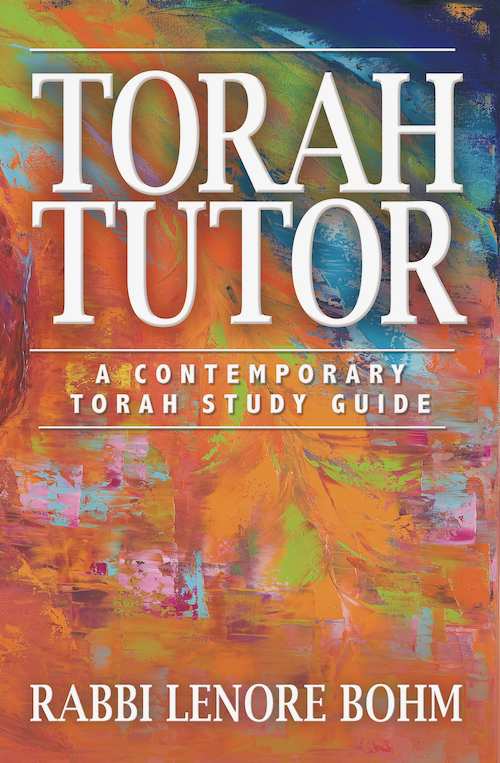Albert Einstein said that “coincidence is God’s way of being anonymous.” That thought occurred to me when Rabbi Bohm invited me to write this foreword. She was not aware that for many years, I have wanted to write just such a book, a guide to Torah Study, that would remind readers how an ancient, revered document can be compelling even today. Unfortunately, I never found the time to fulfill this wish, but I am glad Rabbi Bohm did. She has created a work that makes the words of Torah easily accessible to all: rabbi or congregant, teacher or student, individual or group. I encourage anyone who seeks greater spirituality to use Torah Tutor as a guide to enter the eternal conversation between God and the Jewish people.

Torah Study has always been at the very heart of Jewish life. Generations ago, our sages engaged in a discussion about which was more important: study or practice. Rabbi Akiba said study takes precedence. Rabbi Tarfon said doing deeds is greater. The lively discussion continued until the majority agreed with Akiba who said that study is more important because it leads to practice. Talmud Torah k’neged kulam, which means “the study of Torah is equal to everything.”
Why? Because it leads to discovering and understanding our Jewish obligations (mitzvot) and our responsibilities as human beings.
Torah Study asks: What did Hillel see? What nuances came from Rashi’s daughters? What did ibn Ezra contribute from his perspective? How do female scholars such as Nechama Leibowitz and Aviva Gottlieb Zornberg deepen the conversation? All these commentators—and so many more—can help us find that kernel of wisdom to keep us connected to each other and guide us in meeting personal and societal challenges.
A well-researched volume relying on the wisdom of many scholars, Torah Tutor is organized according to the weekly portion, or parasha. After summarizing the parasha’s basic events, Bohm draws our attention to verses that stand out, some of which we may not have realized originate in the Torah. This is followed by ideas to think or talk about, making the portion easy to approach for individual study or group discussion. Finally, Rabbi Bohm offers a focus phrase to strengthen our spiritual awareness during the week.
Rabbi Bohm encourages us to set aside time to reflect on what the Torah teaches, always remembering that a biblical story or character, a verse or even a word, can be understood differently through different perspectives of time and place. Where we are in our own lives at a particular moment enriches the search and the discovery.
For some, it may be best to begin Torah Study alone. Others may prefer to join a group—most synagogues have them. Another option is to sit down with a small group of family or friends and rediscover Torah wisdom in this setting. The most important thing is to start the habit of Torah Study, to set aside a fixed time to do it. I recommend an hour on Shabbat! Before long, you may find yourself looking forward to these weekly moments of challenge and connection. Reading this may become one of the most meaningful parts of your week, renewing, enriching and energizing you for the other tasks that fill your days.
Kol hakavod to Rabbi Bohm for sharing with us her gifts of heart, mind, and spirit, and making this unique and important contribution to the study of Torah. May we welcome her efforts with open minds, and may she go from strength to even greater strength in her learning and teaching.
Rabbi Sally J. Priesand, North America’s first female rabbi, was ordained in June, 1972. She has served congregations in communities in New York and New Jersey and also has served on national Jewish boards. Through the years, she has become a sought-after speaker, teacher and contributor to many books about Judaism.